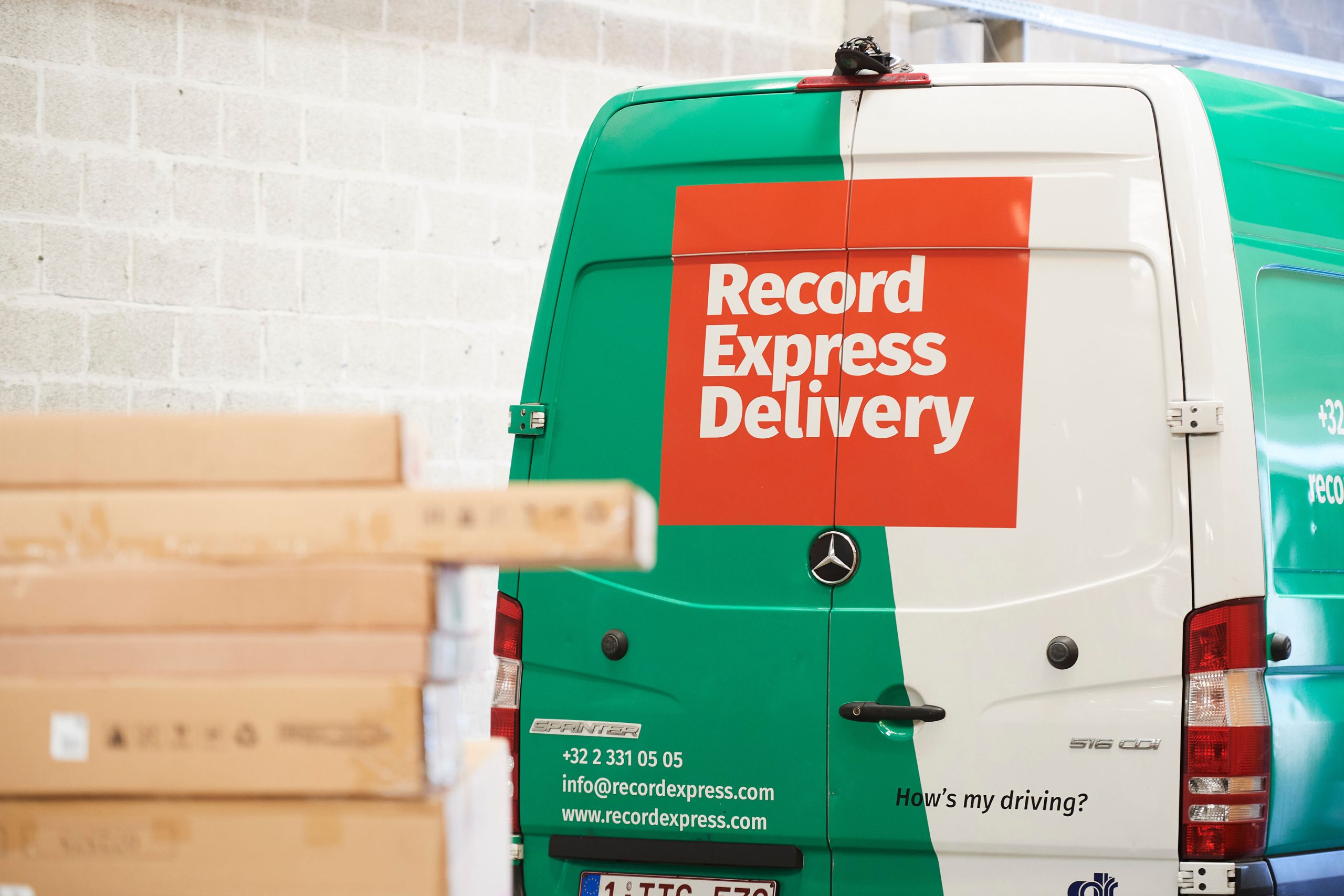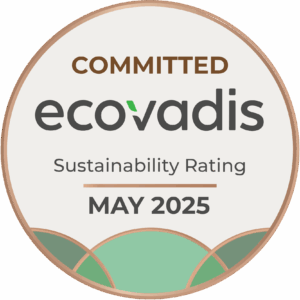Pratiques logistiques durables
Les pratiques logistiques durables réduisent l'impact environnemental des chaînes d'approvisionnement tout en maintenant l'efficacité et la fiabilité. Les méthodes utilisées comprennent l'utilisation de véhicules électriques (VE), d'emballages recyclables, l'optimisation des itinéraires, la compensation des émissions de carbone et les principes de l'économie circulaire. ENVOYER LE COLISHome / Logistique du commerce électronique / Pratiques logistiques durables

Pratiques logistiques durables
TL;DR : Les pratiques logistiques durables réduisent l’impact environnemental des chaînes d’approvisionnement tout en maintenant l’efficacité et la fiabilité. Les méthodes utilisées comprennent l’utilisation de véhicules électriques (VE), d’emballages recyclables, l’optimisation des itinéraires, la compensation des émissions de carbone et les principes de l’économie circulaire. En Belgique et dans l’UE, les entreprises de logistique sont censées s’aligner sur les objectifs de durabilité dans le cadre du Green Deal européen, ce qui fait de la logistique verte à la fois une obligation de conformité et un avantage concurrentiel.
Qu’est-ce que la logistique durable ?
La logistique durable est l’intégration de pratiques respectueuses de l’environnement dans les opérations de la chaîne d’approvisionnement afin de réduire les émissions, les déchets et l’utilisation des ressources(Commission européenne). Elle vise à équilibrer l’efficacité opérationnelle et la réduction de l’impact écologique dans les domaines du transport, de l’entreposage et de l’emballage.
- Réduire les émissions de CO₂ grâce à des transports plus propres
- Adopter des emballages recyclables et réutilisables
- Réduire la consommation de carburant grâce à des itinéraires optimisés
- Améliorer l’efficacité énergétique des entrepôts
- Mesure et déclaration de l’empreinte carbone
À retenir : La logistique durable consiste à alléger les chaînes d’approvisionnement et à les rendre plus écologiques sans compromettre la fiabilité.
Pourquoi la durabilité est-elle importante dans le domaine de la logistique ?
La durabilité est essentielle dans le domaine de la logistique, car les chaînes de transport et d’approvisionnement sont parmi les principaux responsables des émissions mondiales de CO₂(OCDE). Les entreprises sont confrontées à une pression réglementaire croissante, à une demande de plus en plus forte des consommateurs pour des pratiques respectueuses de l’environnement et au risque financier que représente le coût élevé des carburants.
- Le Green Deal de l’UE vise une réduction de 90 % des émissions des transports d’ici à 2050
- Les consommateurs choisissent de plus en plus des marques écologiques
- L’efficacité énergétique réduit les coûts opérationnels
- La durabilité réduit le risque de sanctions et d’atteinte à la réputation
- Les pratiques écologiques améliorent la compétitivité dans les appels d’offres et les partenariats
À emporter : La logistique durable est à la fois une exigence réglementaire et un facteur de différenciation sur le marché.
Quelles sont les pratiques écologiques courantes dans le domaine de la logistique ?
Les entreprises de logistique mettent en œuvre une série de pratiques respectueuses de l’environnement, allant des flottes de véhicules électriques à la compensation des émissions de carbone(ISO).
- Passage à des véhicules de livraison électriques et hybrides
- Utilisation d’emballages recyclables, compostables ou réutilisables
- Programmes de compensation du carbone pour les émissions inévitables
- Panneaux solaires dans l’entrepôt et éclairage à faible consommation d’énergie
- Systèmes de logistique inverse pour soutenir le recyclage et la réutilisation
Ces méthodes aident les entreprises à atteindre leurs objectifs environnementaux tout en améliorant leur efficacité. Par exemple, les logiciels d’optimisation des itinéraires permettent non seulement de réduire les émissions, mais aussi les coûts.
À emporter : Les pratiques logistiques vertes établissent un lien direct entre la responsabilité environnementale et les économies financières.
Comment l’optimisation des itinéraires favorise-t-elle la logistique verte ?
L‘optimisation des itinéraires réduit la consommation de carburant, les émissions et les coûts en veillant à ce que les livraisons suivent les chemins les plus efficaces(IBM).
- Des systèmes alimentés par l’IA identifient les itinéraires les plus courts et les moins encombrés.
- Les ajustements dynamiques tiennent compte du trafic et des conditions météorologiques
- La réduction de la marche au ralenti diminue la consommation de carburant et les émissions de CO₂.
- Permet de respecter les délais de livraison tout en réduisant l’impact sur l’environnement
- Intégration avec la gestion de l’autonomie des VE pour des flottes durables
À emporter : Un routage plus intelligent présente un double avantage : des opérations plus écologiques et des coûts logistiques réduits.
Quel rôle joue l’emballage dans la logistique durable ?
Les emballages écologiques réduisent les déchets, encouragent le recyclage et diminuent les émissions liées à la production des matériaux(CNUCED).
- Les matériaux recyclables et biodégradables remplacent les plastiques.
- Les systèmes d’emballage réutilisables réduisent les déchets à usage unique
- Les matériaux légers réduisent la consommation de carburant pour le transport
- Conception facilitant l’élimination et le recyclage
- Une image de marque qui souligne l’engagement en faveur du développement durable
L’emballage est souvent la mesure de durabilité la plus visible pour les clients, ce qui en fait un facteur clé de la réputation de la marque dans le commerce électronique et la logistique de détail.
À emporter : L’emballage durable protège à la fois la planète et l’image de marque.
Qu’est-ce que la compensation carbone dans le domaine de la logistique ?
La compensation des émissions de carbone permet d’équilibrer les émissions inévitables en finançant des réductions équivalentes ailleurs(CCNUCC).
- Investissements dans des projets d’énergie renouvelable ou de reforestation
- Compensations mesurées en crédits carbone vérifiés
- Utilisé parallèlement aux stratégies de réduction des émissions
- Aide les entreprises à atteindre leurs objectifs en matière de consommation nette zéro
- Souvent dans le cadre des rapports sur le développement durable destinés aux parties prenantes
Si la compensation ne remplace pas la réduction des émissions, elle complète les stratégies de réduction et soutient les projets de développement durable à l’échelle mondiale.
À retenir : La compensation est un outil de transition qui permet de respecter les engagements pris en matière de climat pendant que les réductions à plus long terme se mettent en place.
Comment les réglementations de l’UE influencent-elles la logistique verte ?
Le Green Deal de l’UE et les politiques connexes imposent des réductions d’émissions, l’adoption de carburants propres et la transparence des rapports dans le domaine de la logistique(EU Transport).
- Le paquet “Fit for 55” fixe des objectifs contraignants de réduction des émissions
- Les normes Euro 7 pour les véhicules renforcent les exigences en matière de flotte
- Rapports obligatoires sur le développement durable pour les grandes entreprises
- Incitations à l’adoption des VE et des énergies renouvelables
- Sanctions en cas de dépassement des seuils de carbone
En Belgique, des initiatives nationales soutiennent l’électrification, les centres logistiques intelligents et les zones de livraison urbaine sans émissions, s’alignant ainsi sur les objectifs de l’UE.
À emporter : Les cadres réglementaires font de la logistique verte une nécessité de conformité, et non un simple choix.
Comment Record Express assure une logistique durable en Belgique
Record Express intègre des pratiques logistiques vertes dans ses opérations afin d’aider les entreprises belges à atteindre leurs objectifs en matière de développement durable tout en garantissant des livraisons fiables.
- Une flotte de véhicules électriques et hybrides pour des livraisons à faibles émissions
- Technologie de routage intelligent pour réduire les émissions de CO₂ et améliorer l’efficacité
- Utilisation d’emballages recyclables et de conteneurs consignés
- Des services de livraison respectueux de l’environnement pour les entreprises soucieuses de l’environnement
- Engagement à >98% de livraisons à temps avec des méthodes plus écologiques
🔗 Lecture connexe :
- Technologie de la logistique
- Conformité de la logistique : Lois et normes
- Expédition accélérée : Comment cela fonctionne-t-il ?
- Le transport de marchandises expliqué
- Livraison en gants blancs : Qu’est-ce que c’est et quand l’utiliser ?
FAQ
1. Qu’est-ce que la logistique verte ?
La logistique verte fait référence à des pratiques respectueuses de l’environnement dans les chaînes d’approvisionnement, telles que les flottes de véhicules électriques, l’éco-emballage et la réduction des émissions.
2. Comment les entreprises bénéficient-elles d’une logistique durable ?
Ils réduisent les coûts, répondent aux exigences réglementaires et attirent les clients soucieux de l’environnement.
3. La compensation des émissions de carbone est-elle suffisante pour rendre la logistique durable ?
Non, elle doit compléter, et non remplacer, les stratégies de réduction des émissions.
4. Quel rôle les clients jouent-ils dans la logistique durable ?
La demande des clients pousse les entreprises à adopter des options écologiques telles que les emballages recyclables et les expéditions neutres en carbone.
5. Record Express utilise-t-il des pratiques logistiques durables ?
Yes-Record Express intègre des flottes de véhicules électriques, des itinéraires intelligents, des emballages recyclables et des services respectueux de l’environnement en Belgique.
Sources d’information
- Commission européenne – Transport et logistique durables
- OCDE – Croissance verte et transports
- ISO – Normes environnementales
- IBM – Solutions d’optimisation des routes
- CNUCED – Emballage et commerce durables
- CCNUCC – Engagements climatiques et compensation des émissions de carbone
- Transport dans l’UE – En forme pour 55 ans et normes d’émission

Record Express was awarded a 59/100 score by EcoVadis, the global leader in sustainability ratings.